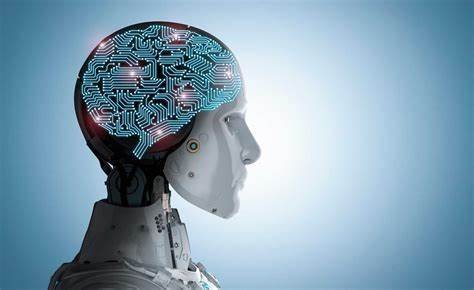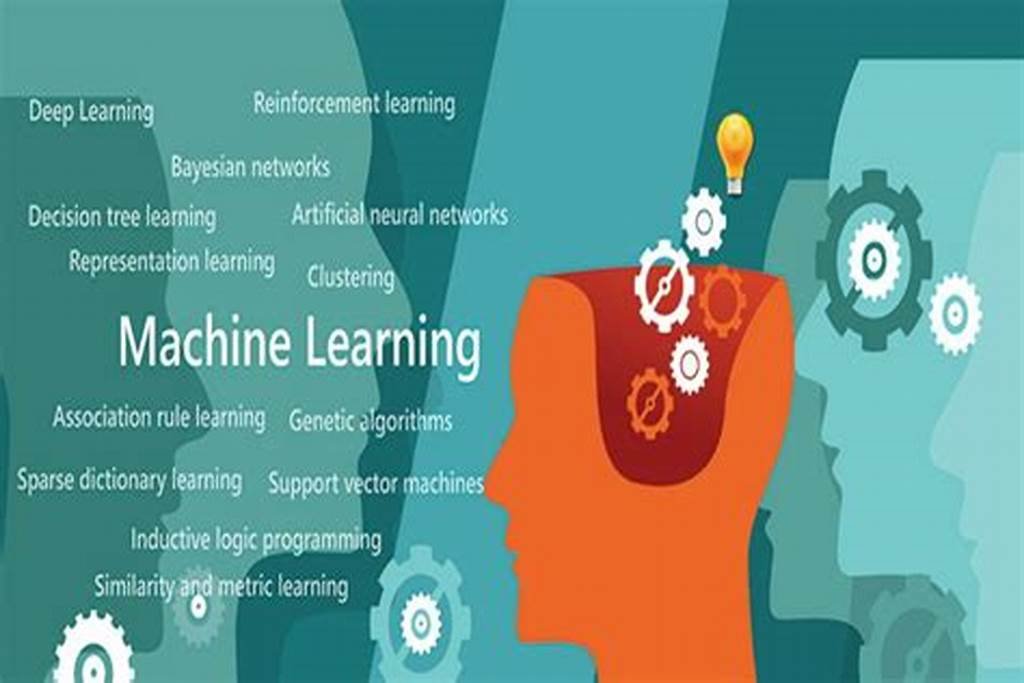Applied Machine Learning – Transforming Industries with Intelligent Solutions

Machine learning of artificial intelligence has revolutionized how businesses operate in today’s fast-paced world. Applied machine learning has become a cornerstone for creation and efficiency across different industries, from expecting customer behavior to optimizing manufacturing processes.
Introduction to Applied Machine Learning
Applied Machine Learning is the gateway to unclosing the possibility of artificial intelligence in real-world techniques. It encompasses applying algorithms and statistical models to allow computers to perform tasks without exact programming instructions. Unlike traditional programming paradigms, where developers explicitly define rules, machine learning authorizes systems to learn from data and improve over time.
At its core, applied machine learning leverages comprehensive quantities of data to identify patterns, make projections, and optimize processes across different domains. By analyzing historical data and determining trends, machine learning algorithms can automate decision-making strategies, improve efficiency, and drive innovation in various fields such as healthcare, finance, dealing, and manufacturing.
The introduction to applied machine learning sets the stand for comprehending its importance in today’s digital landscape. It highlights the transformative possibility of harnessing data-driven insights to solve complex problems and operate business development. As organizations increasingly rely on data to inform strategic conclusions, applied machine learning emerges as a powerful tool for removing actionable intelligence from extensive and complex datasets.
The introduction to applied machine learning underscores its role as a catalyst for innovation and progress, shaping the future of industries and societies.
The Basics of Machine Learning
Delving into the fundamentals of machine learning unveils a dynamic landscape where algorithms evolve and adapt independently. At its core, machine learning is a paradigm shift from traditional programming, where computers learn patterns and behaviors from data rather than relying on explicit instructions. Picture it as a digital apprentice, fed vast datasets to discern patterns and make informed decisions autonomously.
The crux lies in understanding key components: algorithms, training data, and models. Algorithms serve as problem-solving tools, utilizing training data to refine their predictive capabilities, ultimately producing models capable of making accurate decisions in new, unseen situations. Algorithmic learning and data-driven refinement form the bedrock of the machine learning process, empowering systems to generalize knowledge and apply it across diverse scenarios.

In essence, the basics of machine learning demystify the traditional programmer-computer relationship, ushering in a new era where systems learn and adapt, mirroring the intricacies of human cognition.
Real-world Applications
Beyond theory, real-world applications of machine learning redefine how industries operate, ushering in a transformative era of efficiency and innovation. Imagine healthcare systems predicting diseases before symptoms manifest or financial institutions thwarting fraud with unparalleled precision. Machine learning’s impact extends into marketing, where personalized strategies amplify consumer engagement and manufacturing, optimizing production processes with unprecedented accuracy.
These applications highlight machine learning’s versatility and definite benefits, displaying its prowess in solving complex challenges across various sectors. As organizations increasingly combine machine learning into their workflows, the technology facilitates operations and revolutionizes decision-making. The real-world applications of machine learning paint a picture of a future where intelligent systems, fueled by data, drive exceptional advancements in various fields, improving both productivity and the overall mortal experience.
Challenges and Solutions in Applied Machine Learning
Navigating the landscape of applied machine learning reveals a dichotomy of challenges and innovative solutions. Challenges arise in ensuring data quality and quantity, confronting ethical considerations, and overcoming implementation barriers. The journey involves addressing the perplexity of diverse datasets and mitigating biases to foster fair decision-making. Ethical considerations demand transparency and responsible AI use. Overcoming implementation barriers requires strategic planning and adapting to the evolving technological landscape.

Solutions emerge through meticulous data management, fostering a culture of ethical AI, and embracing technological advancements. While presenting hurdles, applied machine learning provides a roadmap for overcoming these challenges, paving the way for intelligent solutions that positively impact industries and society.
Machine Learning Models
In applied machine learning, diverse models are the architects of intelligent decision-making. Picture supervised learning as a guide, where algorithms analyze labeled data to predict outcomes, forming the backbone of predictive analytics. Like an explorer, unsupervised learning uncovers hidden patterns within unlabeled data, illuminating insights without predefined categories. Reinforcement learning, a digital trial-and-error, enables systems to learn from interactions with an environment, evolving strategies through feedback loops.
These models represent machines’ nuanced strategies to comprehend and navigate complex datasets. Understanding machine learning models is akin to deciphering the varied tools in a problem-solving toolkit, each with its unique approach to transforming data into actionable intelligence.
Case Studies
Real-world success stories highlight the transformative power of applied machine learning. From personalized healthcare treatments to predicting market trends, case studies demonstrate how this technology reshapes industries and improves decision-making processes.
Future Trends in Applied Machine Learning
Staring into the horizon of applied machine learning informs a landscape shaped by constant development and groundbreaking creations. As technology advances, so does the integration of machine learning into diverse aspects of our lives. Appearing trends hint at seamless associations with other technologies, opening doors to novel applications and upgraded capabilities.

The future expects machine learning to be a problem solver and a proactive force, expecting needs and offering solutions before they appear. This anticipatory nature, associated with increased accessibility and adaptability, propels applied machine learning into an involved future where intelligent solutions become integral to the fabric of our rapidly evolving digital ecosystem.
How Businesses Can Benefit
Embarking on the journey of applied machine learning holds transformative promise for businesses seeking a competitive edge. The technology is a strategic partner, improving efficiency, decision-making processes, and customer experiences. Companies can use machine learning to simplify operations, uncover valuable insights from data, and optimize workflows by gaining an essential advantage in the ever-evolving marketplace.
This technology empowers associations to guide the complexities of the digital age with skill and precision, facilitating innovation and setting the stage for sustained growth. The benefits extend above mere automation, offering a paradigm shift that puts businesses at the forefront of a data-driven and forward-thinking landscape.
Tips for Implementing Machine Learning Projects
Implementing machine learning projects requires setting clear goals, selecting suitable algorithms, and collaborating with domain experts. This section provides practical tips for organizations integrating machine learning into their operations.
Ethical Considerations in Applied Machine Learning
In the ethical terrain of applied machine learning, the compass is toward fairness, transparency, and responsible utilization. As algorithms make critical decisions, addressing biases becomes paramount, ensuring equitable outcomes. Like a guiding light, transparency demands clear communication about decision-making, fostering trust between systems and users. Responsible use involves contemplating the societal impact and steering away from undue consequences. Navigating this landscape involves:
- Not just technological but also a commitment to ethical principles.
- It is safeguarding against unintended biases.
- We are ensuring that applied machine learning contributes positively to the well-being of individuals and communities.
Overcoming Resistance to Change
Implementing machine learning projects requires setting clear goals, selecting suitable algorithms, and collaborating with domain experts. This section provides practical tips for organizations combining machine learning into their processes.
Continuous Learning and Adaptation
In the dynamic realm of applied machines, the heartbeat of progress resonates through continuous learning and adaptation. Imagine a digital ecosystem akin to an ever-evolving organism, where staying relevant requires constantly assimilating new knowledge and skills. Professionals navigating this landscape are not static entities but agile learners, embracing ongoing training to synchronize with the rapid cadence of technological advancements.

This ethos extends beyond mere technical mastery; it encompasses a mindset that thrives on curiosity, resilience, and the willingness to pivot. The crux lies in the symbiosis between technology and the human capacity to learn, ensuring that the journey through applied machine learning is a perpetual exploration of possibilities.
The Role of Data in Applied Machine Learning
Data is the lifeblood of machine learning. This section delves into the significance of data collection, preprocessing, and security in creating dependable datasets for successful machine learning tasks.
Building a Career in Applied Machine Learning
Embarking on a career in applied machine learning is akin to entering a realm where curiosity meets innovation. It demands a fusion of technical prowess and creative problem-solving. Imagine navigating through data landscapes, deciphering patterns, and crafting solutions that redefine industries. The journey involves acquiring programming, statistical analysis, and algorithmic understanding skills.
Educational resources act as guiding stars, decorating the path for those desiring to master the difficulties of machine learning. With burgeoning job opportunities, a career in applied machine promises professional development and a front-row center to shape the future of technology and its impactful applications.
Conclusion
In conclusion, applied machine learning transforms industries, presenting intelligent solutions to complex challenges. Assuming this technology, understanding its applications, and guiding its challenges will be essential to success in the rapidly evolving landscape.
FAQs:
How can businesses overcome moral situations in machine learning?
Businesses can address ethical concerns by securing clarity, fairness, and responsible use of AI technologies.
What are the critical skills needed for a career in applied machine learning?
Essential skills include programming, statistical knowledge, and a strong understanding of algorithms and data.
How can organizations create a culture of innovation to assume machine learning?
Building a culture of innovation involves fostering open communication, facilitating experiments, and recognizing and awarding innovative ideas.
Where can I find educational resources for learning about applied machine learning?
Online platforms, universities, and specialized courses offer many educational resources for learning about applied machine learning.








